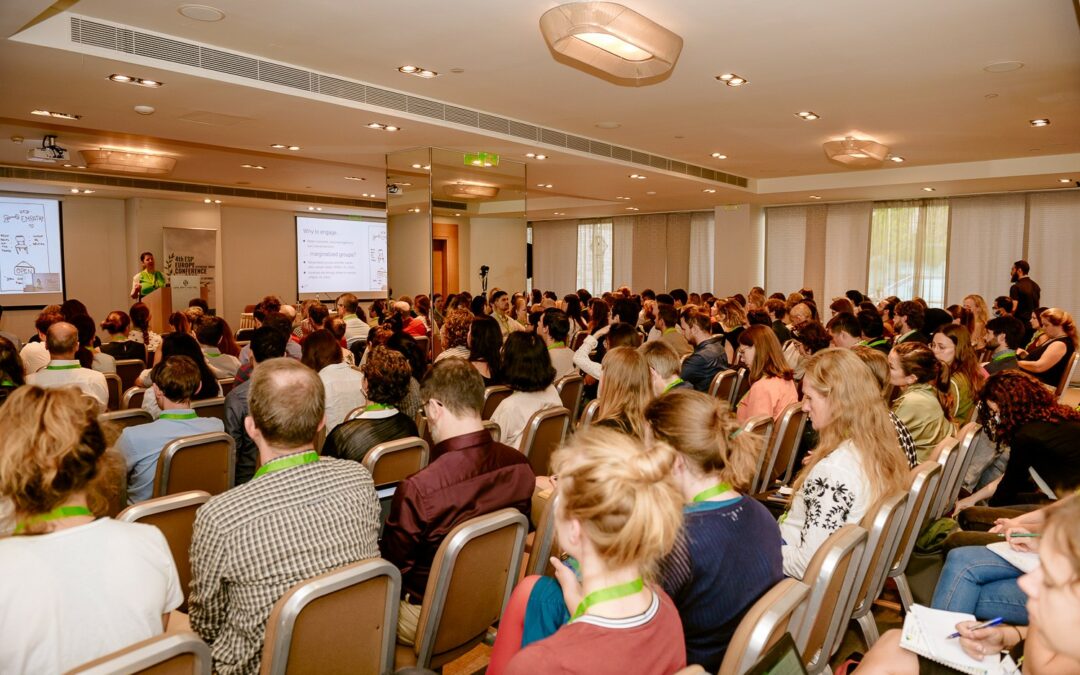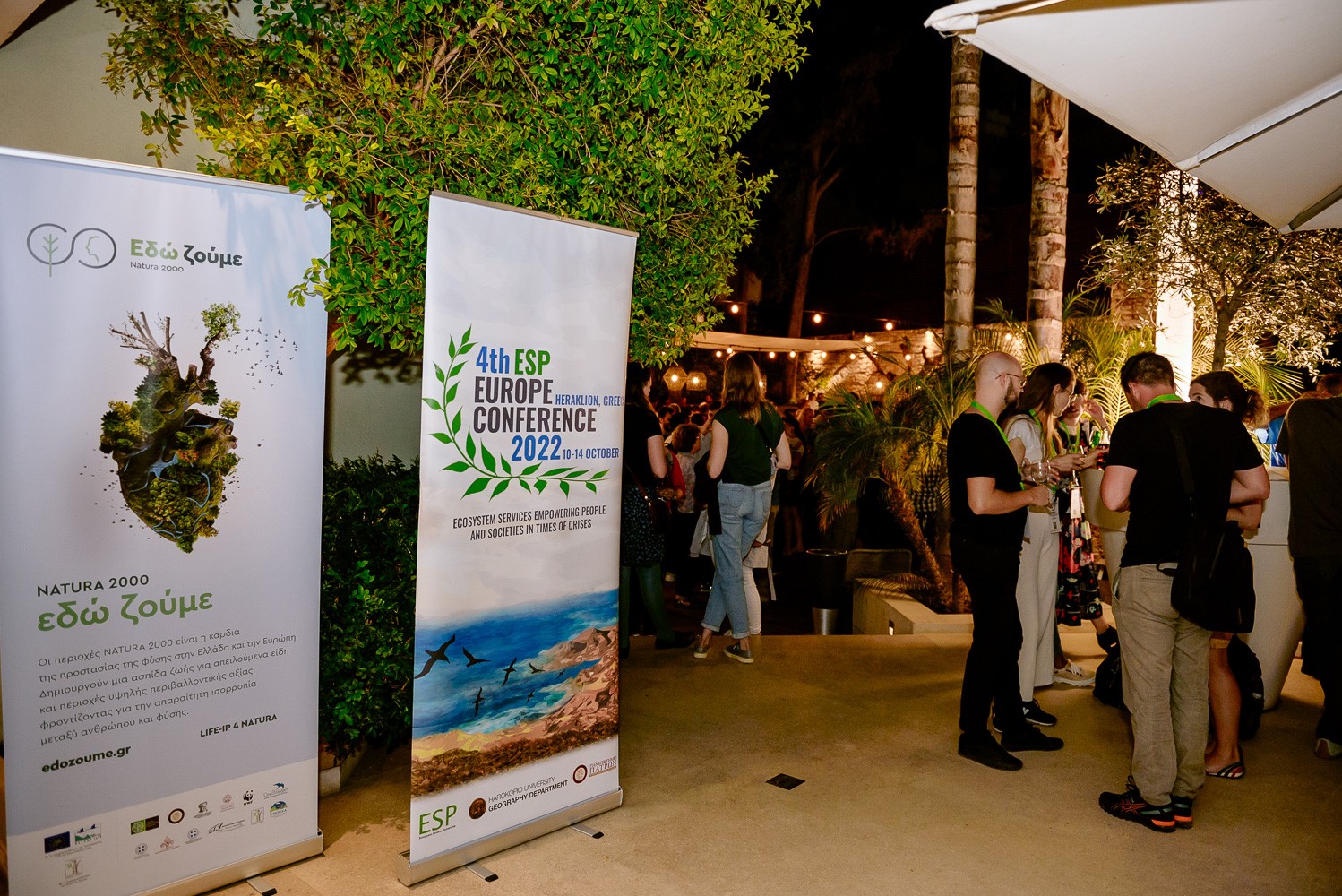The Ecosystem Service Partnership Conference offered a welcome opportunity to discuss the topics and research of Contracts2.0. From the 10th until 14th of October, the Ecosystem service research community gathered in Heraklion, Crete, to spend five warm autumn days together discussing transformative ecosystem research, the future of education, and values.
Discussing motivating contract design
The researchers working in the Contracts2.0 project were well represented and hosted several sessions. For instance, the session “Motivating contracta formal, written agreement for a specified duration signed by (at least) two parties. In Contracts2.0, we acknowledge the existence of informal contracts but use formal contracts to focus the research. More design for the provision of ecosystem services and biodiversity in agriculture”, facilitated by Bettina Matzdorf, discussed the development and implementation of innovative contracta formal, written agreement for a specified duration signed by (at least) two parties. In Contracts2.0, we acknowledge the existence of informal contracts but use formal contracts to focus the research. More models to produce more biodiversity and ecosystem services in the agricultural landscape.
Eszter Kelemen talked about the results from the Policy Delphi study, which was carried out as part of the Contracts2.0 project and explored how and under which circumstances novel contractual solutions could be better implemented within the European policy context.
Then, in his talk about farmers’ preferences for new agri-environmental-climate measures (AECM), Wojciech Zawadzki presented the results from the stated-preference-based Discrete Choice Experiment, where farmers could choose between practice-based and results-based agri-environmental measures.
Reflecting the implementation of novel contractual models
In the session on “Results-based approaches and other integrated models as drivers for ecological conservation and policy integration”, István Szentirmai gave a presentation on the case study Őrség National Park where new results-based and value chain contracts were designed together with practitioners. Dieter Mortelmans talked about the experiences from the contracta formal, written agreement for a specified duration signed by (at least) two parties. In Contracts2.0, we acknowledge the existence of informal contracts but use formal contracts to focus the research. More innovation labs in Flanders to shift towards results-based agri-environmental measures and simultaneously achieve policy integration in rural municipalities faced with high land pressures.
Making local knowledge count
The last of the sessions that incorporated the Contracts2.0 project was “Making local knowledge count: co-design principles and practices for agri-environmental programmes”, facilitated by Francis Turkelboom. In this session, Louise Vercruysse presented the lessons-learned regarding practitioner participation in the co-design of agro-environmental contracts. Inés Gutiérrez-Briceño held a presentation on how to find incentives to move towards agroecological transition in the Community of Madrid and Jennifer Dodsworth discussed the mapping processes of co-design within Agri-Environment Scheme Development in North-England. Unfortunately, due to technical problems, these last two presentations were quite difficult to follow. The discussion in this session centred around the question of how to deal with local power dynamics and whose knowledge to include.
Food for thought: the role of science and researchers
The conference hosted a number of captivating keynote speeches. On the second day, for instance, Contracts2.0 researcher Ezster Kelemen, gave a talk about the inclusion of indigenous knowledge in Ecosystem Service research.
Who do you include? And how do you navigate the different layers of marginalization?
Her presentation made us reflect on our own position and role as researchers in local power fields. Giving a voice to representatives of local communities may not be enough, and true inclusivity is challenging and requires creative methods. These topics would come back at different times during the conference, and especially in the sessions related to participatory contracta formal, written agreement for a specified duration signed by (at least) two parties. In Contracts2.0, we acknowledge the existence of informal contracts but use formal contracts to focus the research. More co-design.
Another remarkable keynote speech was given by Esther Turnhout about transformative ecosystem services research. She addressed the lack of diversity in the science community and the misconceptions about the science-policy-interface by both scientists and policy makers. There is not enough attention given to the interests and power relations within science, and the dominant framing of research problems. Esther calls for epistemic disobedience, for scientists to claim cognitive justice and integrate a plurality of paradigms. Furthermore, science is not an objective source, but should be part of the “messy, democratic game” that is politics. Definitely one to think about.
All in all…
…it was a successful conference for the Contracts2.0 researchers. Not only to present our work and discuss it with fellow researchers, but also to get inspired by people engaged in similar projects, make new connections and networks, and to reflect critically on our own research.
© Text and Pictures: Louise Vercruysse


